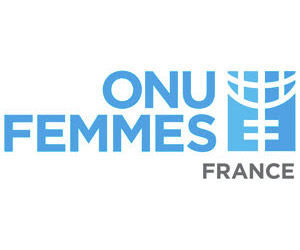Anne Ackermann
Kampala (Uganda), German
Edition 2017 - Finalist
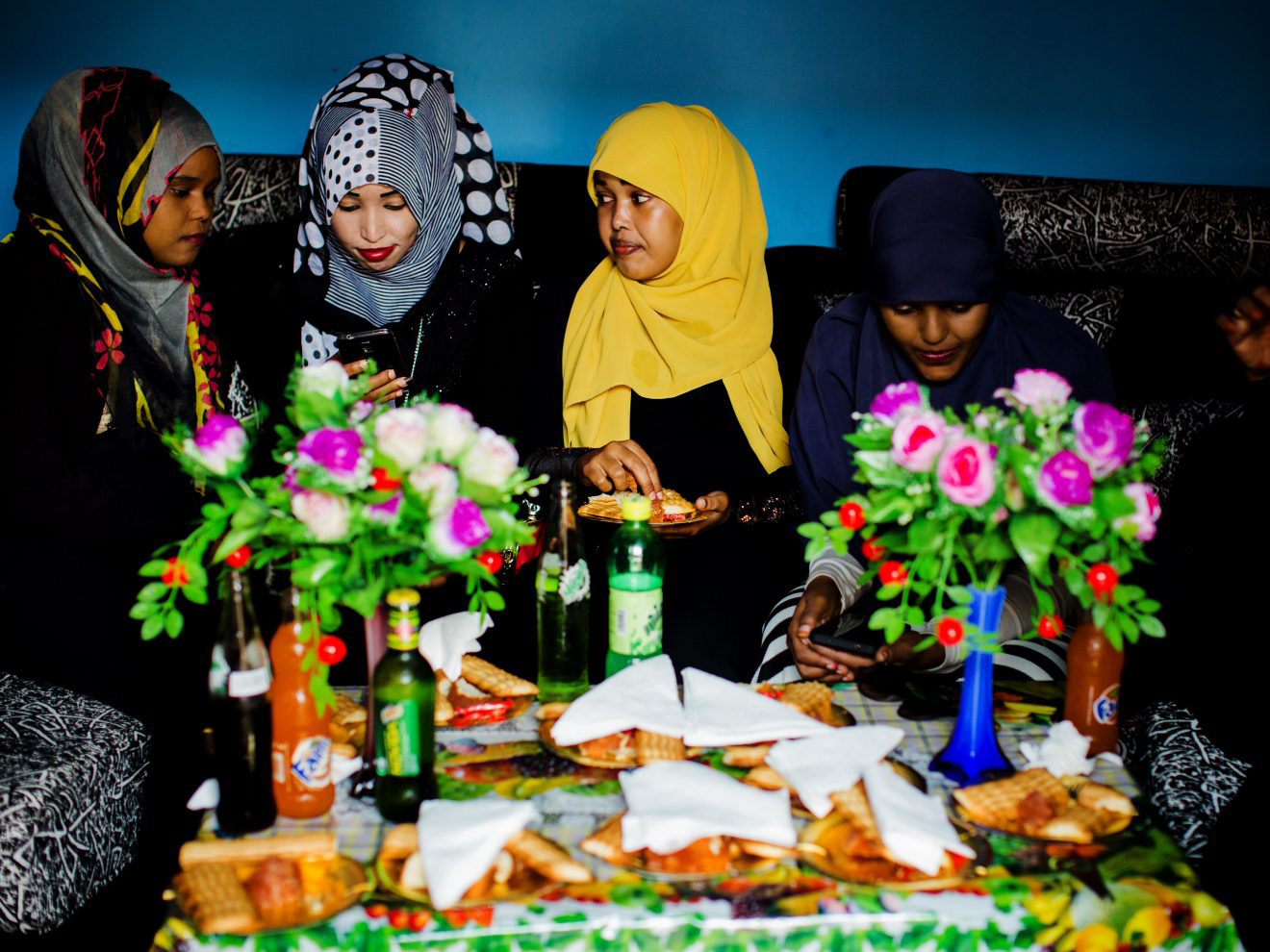
Statement: My project “Behind Veils and Walls” reveals the lives of female Somali refugees living in exile and the quest for an authentic, meaningful existence in a transitional space. After over two decades conflict and violence more than 1.5 million Somalis remain displaced all over the world. Everything is temporary for a refugee awaiting resettlement in the US or Europe, eager to leave Africa once and for all. In Kampala, Uganda, tucked away in a corner of the humming downtown area lies Kisenyi, a small and rough looking bunch of dusty streets bursting with business and trade, home to thousands of Somalis. Welcome to “Little Mogadishu“.Exile to the young women in my photographs seems more like life in a parallel sphere, where they are connected to the international diaspora almost 24/7. They celebrate friendship & solidarity, creating home away from home for each other, often in absence of men. They dream of romantic love just like anyone their age, yet give in to the promising material stabilities of older and more established candidates. Exile is also a hardship that bears stigma, every day hostilities and a haunting past. While they hold on to everything they believe to be Somali, exile is also a liberating experience. Somewhere in this bubble of Somali life in Uganda and hope for a better future in a far away third place, life happens.
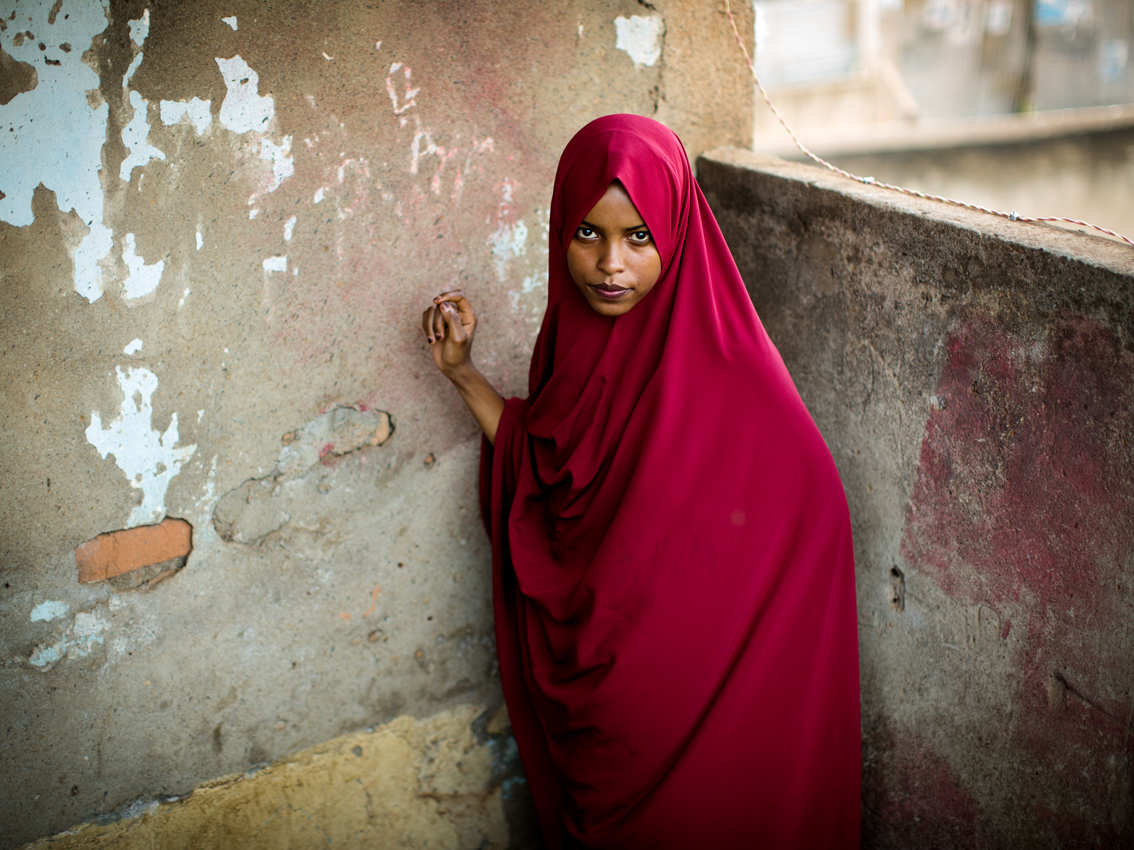
Ayan, a young woman from Somalia, is posing for a photo in the staircase of her new home in Kampala, an appartment block in Kisenyi area aka « Little Mogadishu » for its high number of Somali migrant population. Ayan left Somalia in 2014 with the family she worked for as a house girl when she felt the bomb blasts were getting too much for her. She misses her mother a lot, sometimes they talk on the phone.
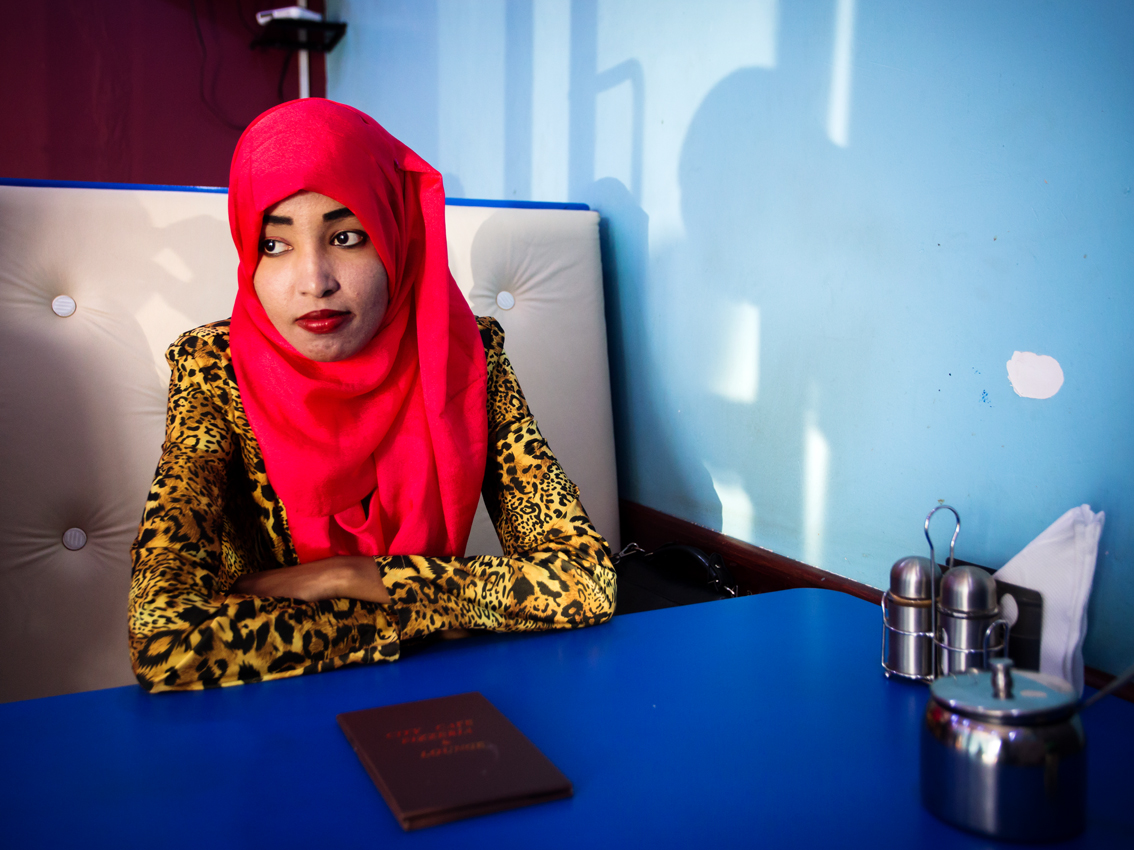
Bishara, 20, a refugee from Somalia and a student of journalism in Kampala is sitting for a portrait in a small coffeshop in Kisenyi, Kampala.

Fartuma is getting married for the second time after a divorce, so is for her older husband-to-be. In the Somali culture it is very important to be married and have many children. Seeking marriage partners is a popular way through which many Somalis plan for a different future. In the diaspora, the most desirable partners are those living in the West.

A young Somali refugee girl gets trapped in a curtain at her grandmother’s house in Kisenyi, Kampala’s neighbourhood with the highest number of Somali migrants. The girl is waiting to be reunited with her mother who has already been resettled to Scandinavia and is waiting for her three children to follow her.
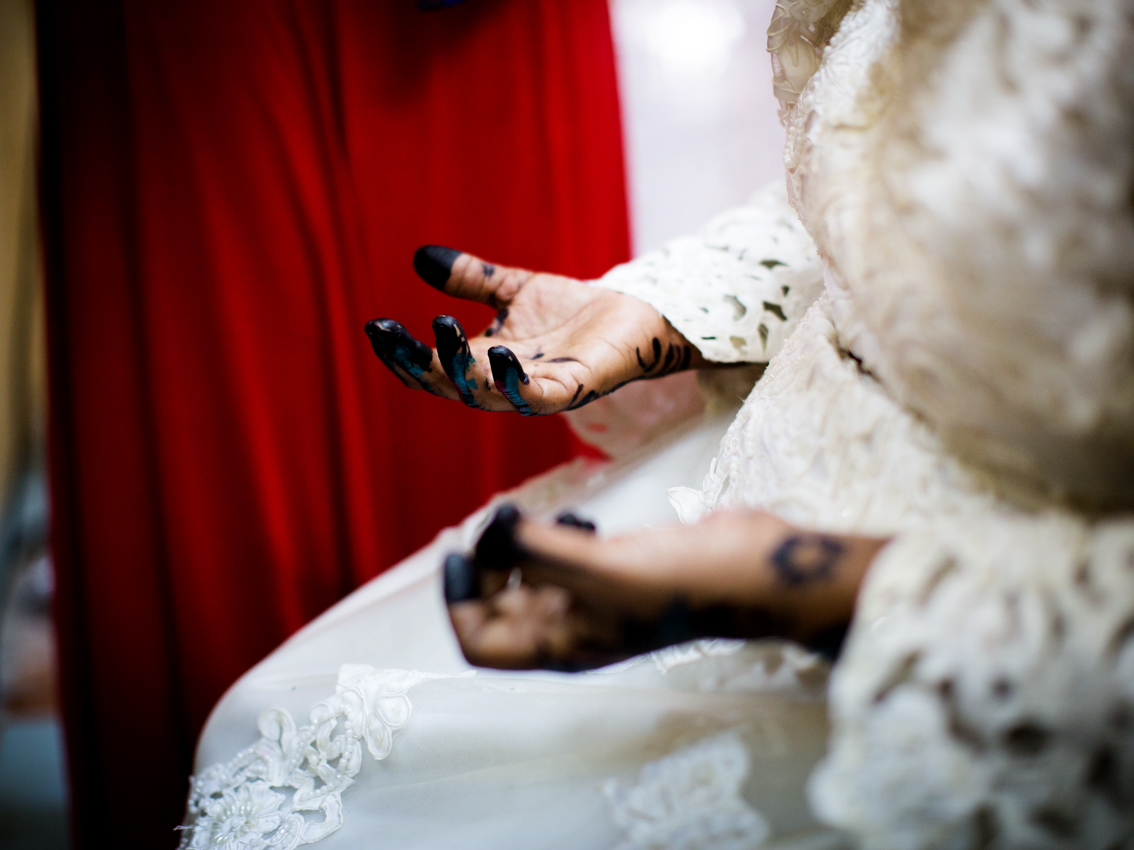
Fartuma’s hands are decorated with Henna before her wedding reception. Fartuma is getting married for the second time after a divorce, so is for her older husband-to-be. In the Somali culture it is very important to be married and have many children. Seeking marriage partners is a popular way through which many Somalis plan for a different future. In the diaspora, the most desirable partners are those living in the West.
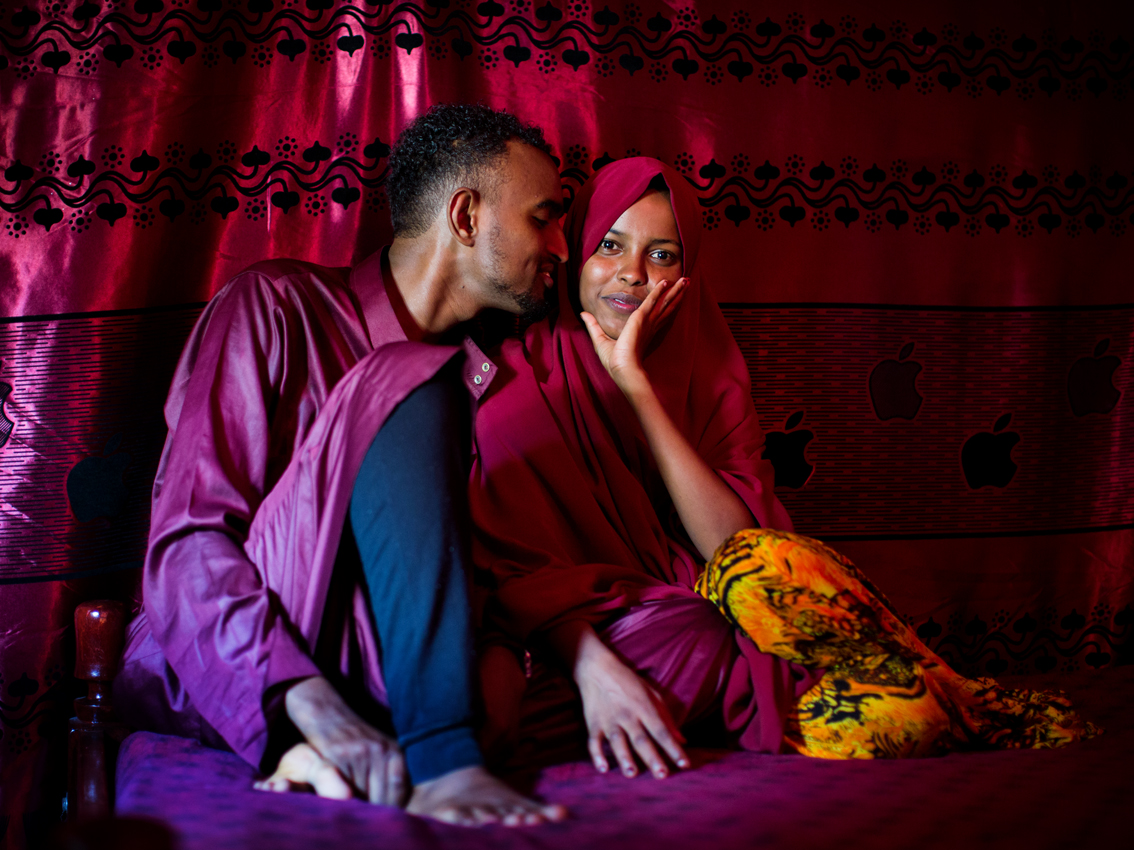
Ayan, 19, and Abdullah, 20, from Mogadishu are married and living together in a small room. They are expecting a baby and trying to make things work despite financial challenges and while neither of them has any relative in Uganda. They share one small rented room in an appartment house in the Kisenyi neighbourhood of Kampala that is entirely rented out to Somali migrants.
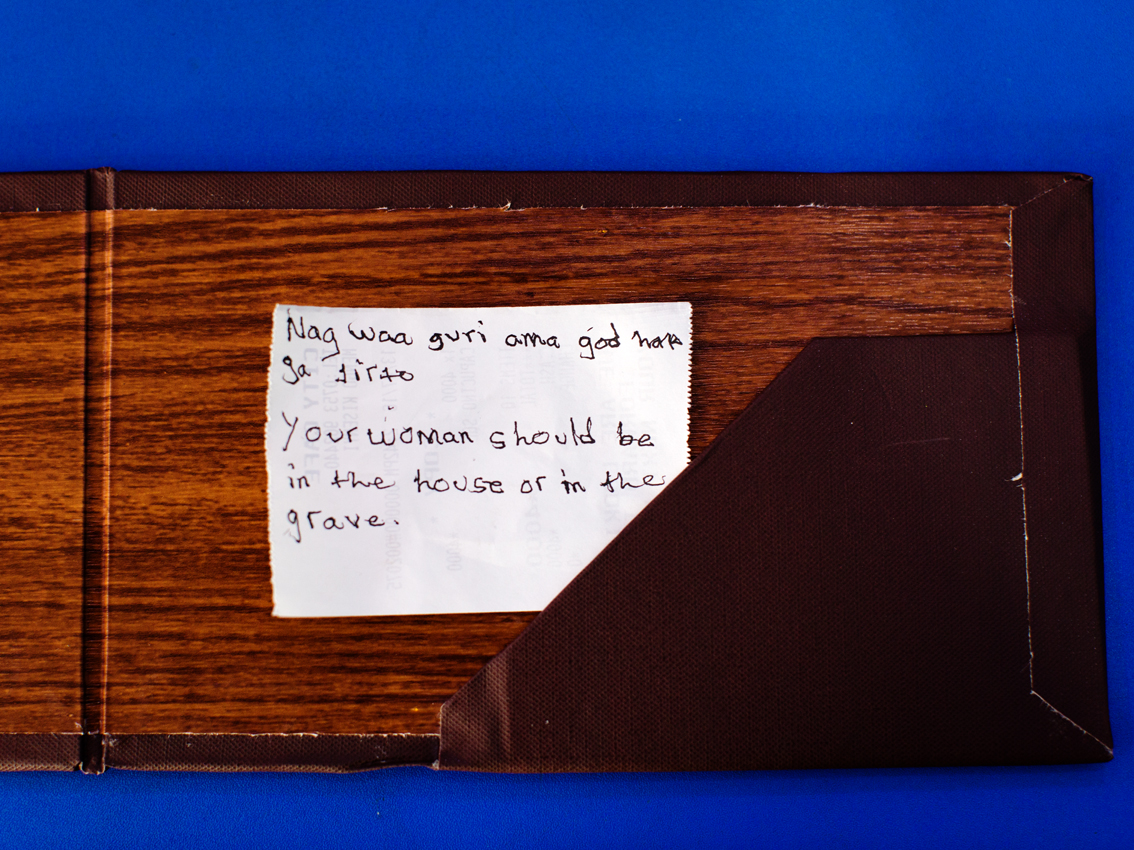
A Somali proverb is written down by one of this project’s female protagonists on the backside of a cheque in a coffeeshop in Somali language and english. We cooperated in finding and selecting proverbs to be added to this project.
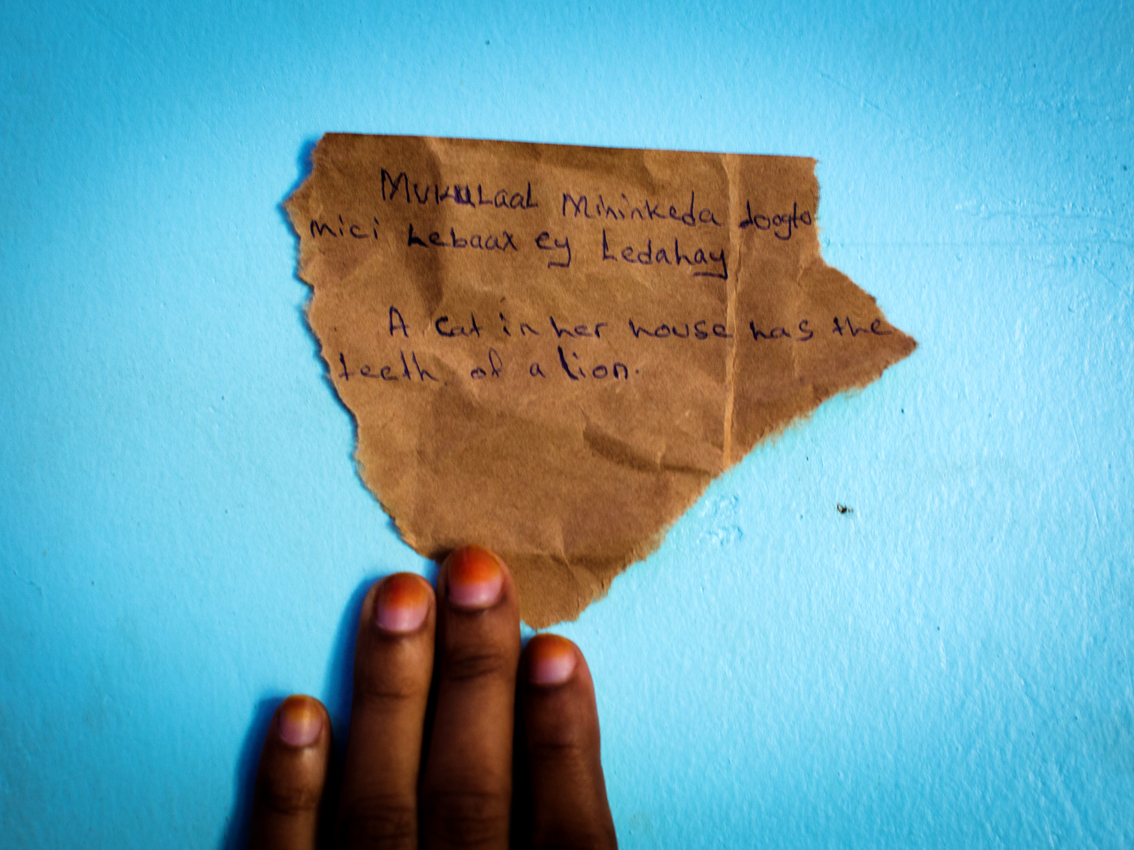
A Somali proverb is written down by one of this project’s female protagonists on a piece of paper held against a wall in Somali language and english. We cooperated in finding and selecting proverbs to be added to this project.
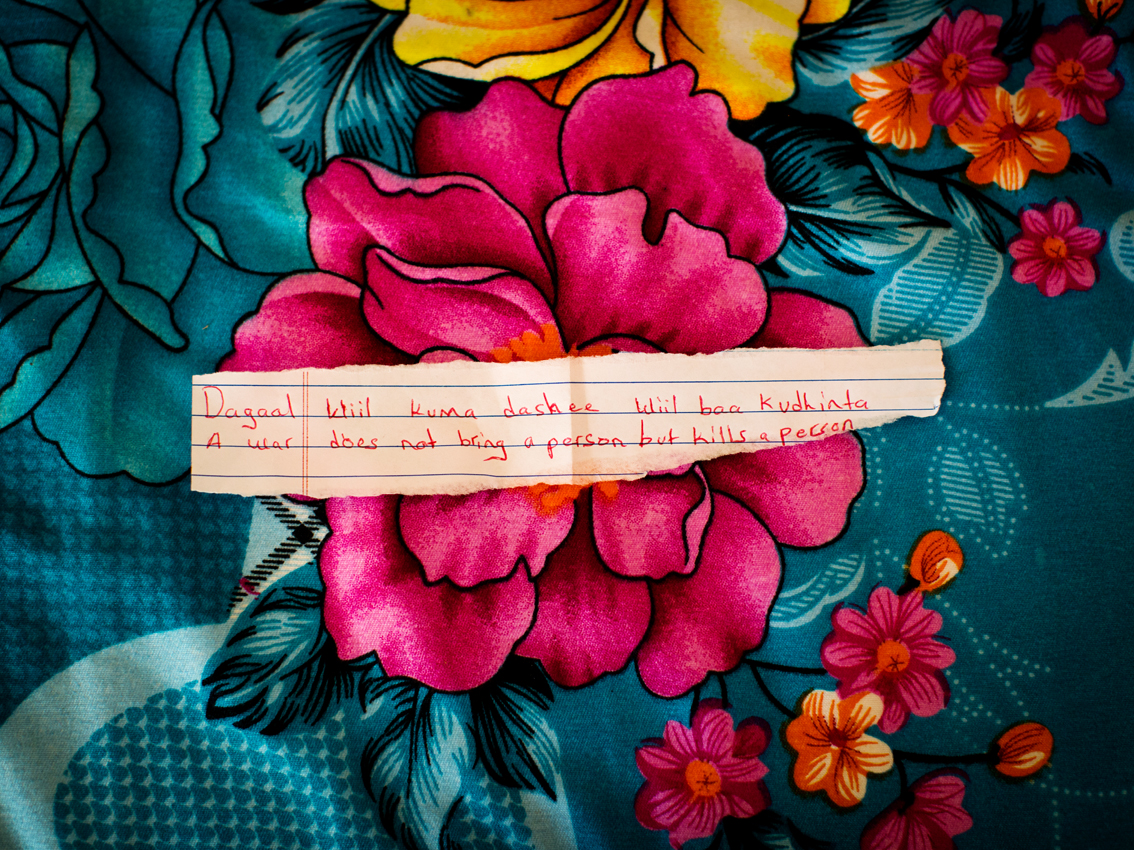
A Somali proverb is written down by one of this project’s female protagonists on a small piece of paper and placed on a flower bedsheet in a shared room of female Somali refugees in Kampala’s Kisenyi neighbourhood. We cooperated in finding and selecting proverbs to be added to this project.
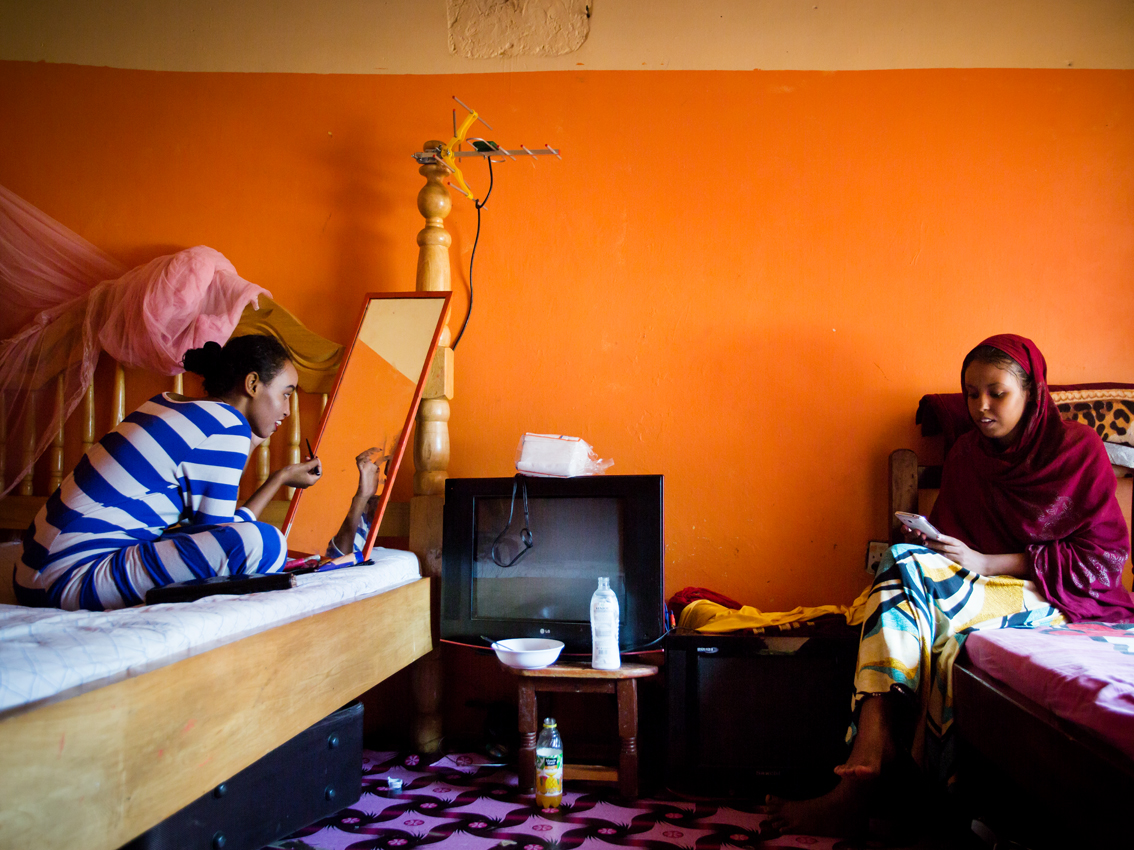
Bishara (left), 20, is seen in a home setting without wearing her veil and while putting on makeup to go out. On the opposite bed sits her younger sister Amal, with whom, amongst others she shares this room. Bishara is studying and working at the same time. She lives in a female only household in Kisenyi, Kampala’s neighbourhood nicknamed » Little Mogadishu » for its high number of Somali migrants, headed by her grandmother, sharing a small space with her mom, aunts and four sisters.
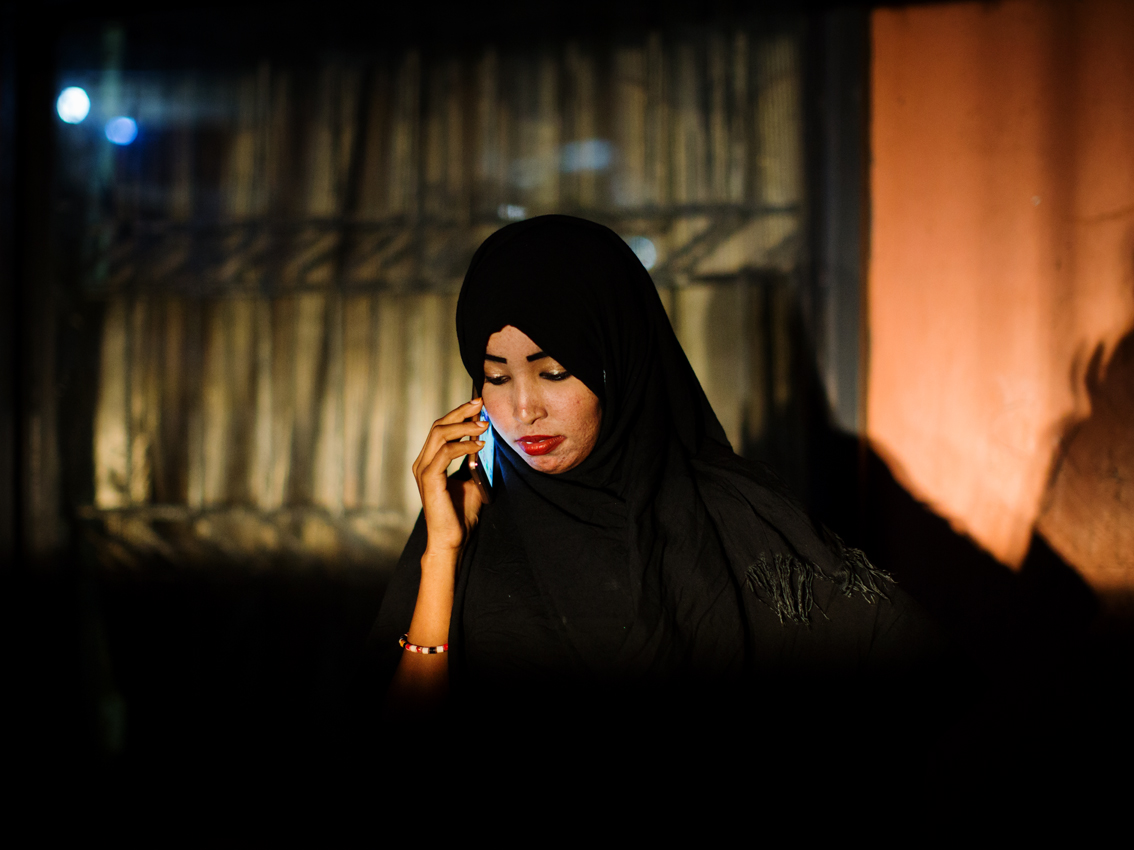
Bishara is calling her Somali boyfriend in Berlin outside of her family’s appartment in Kisenyi. He wants to marry her eventually and live with her in Germany. They have not seen for over a year, but keep in touch through phone and internet.
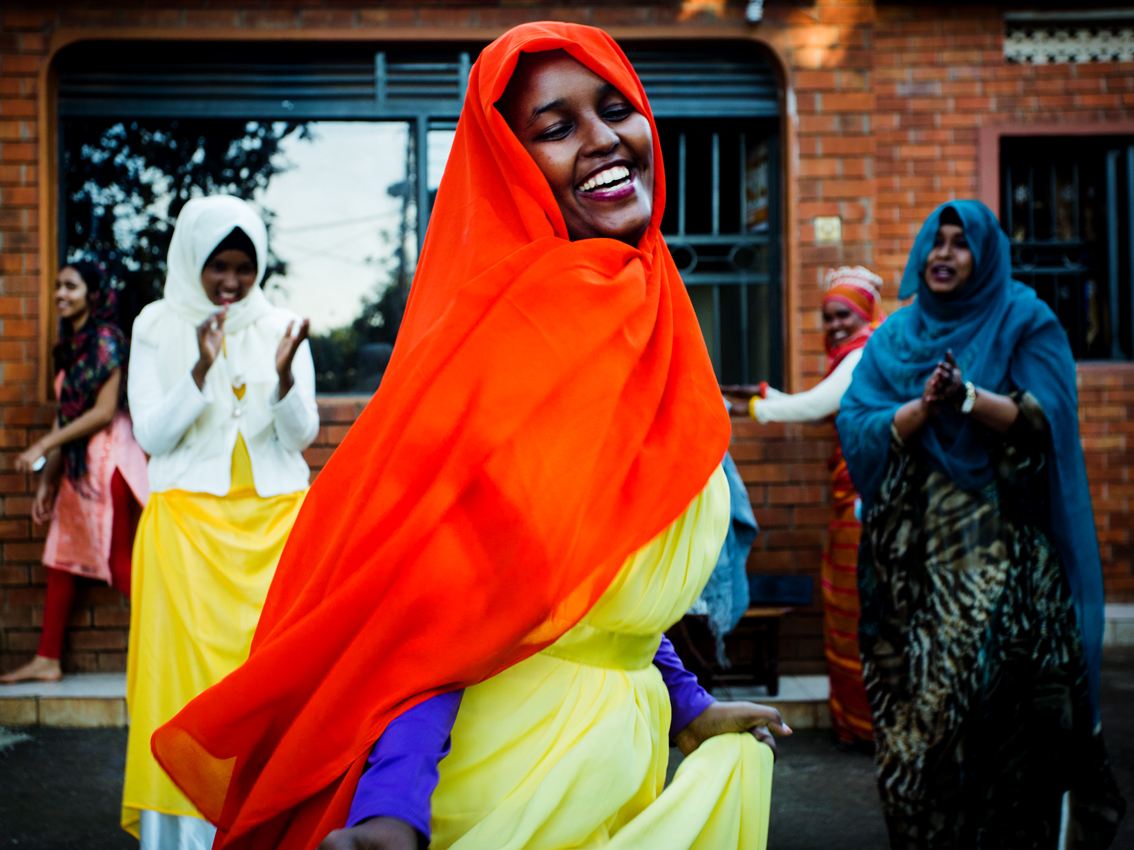
During a traditional Somali wedding in Kampala, a young married woman is seen dancing with other females. Despite the struggles of exile there is always room for moments of joy.
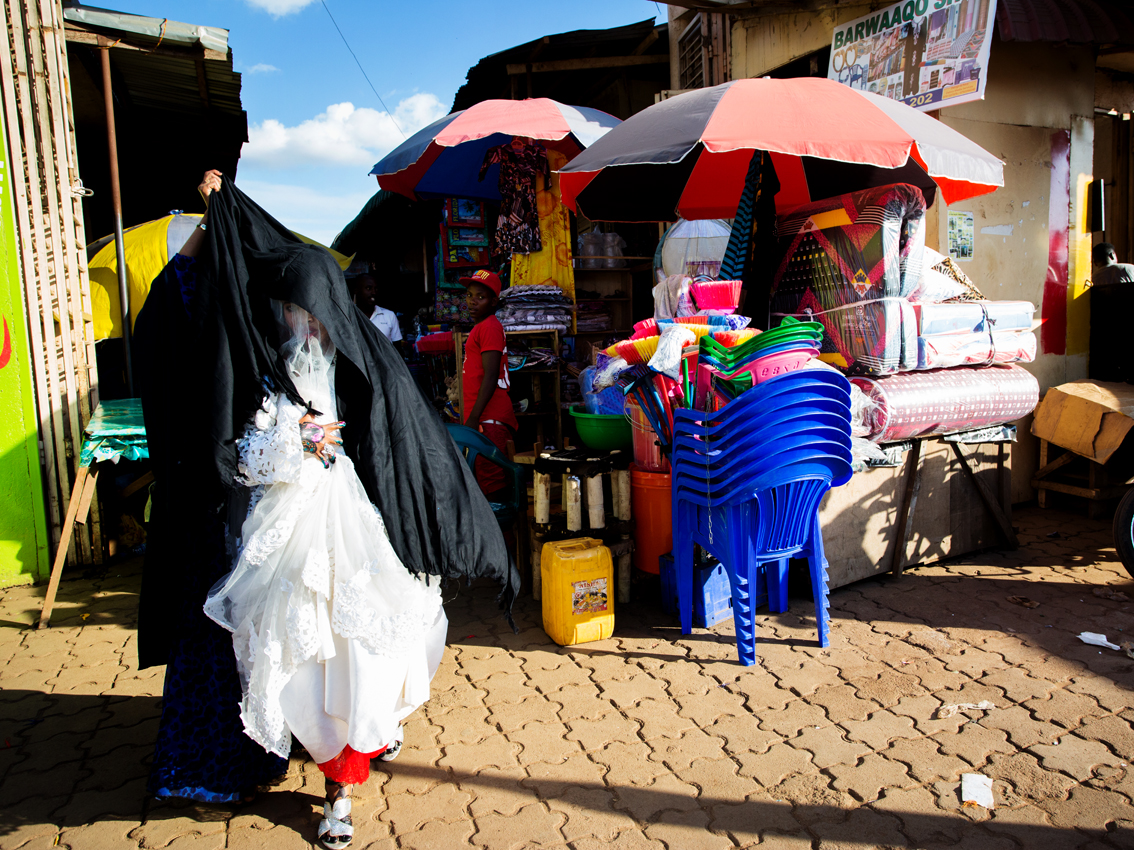
Fartuma is escorted from the beauty salon in which she was prepared for her wedding day to the car that will bring her to the venue. It is okay for a bride to show her hair within the wedding ceremony, however for the meters she walks in public an effort to cover her hair is made.


